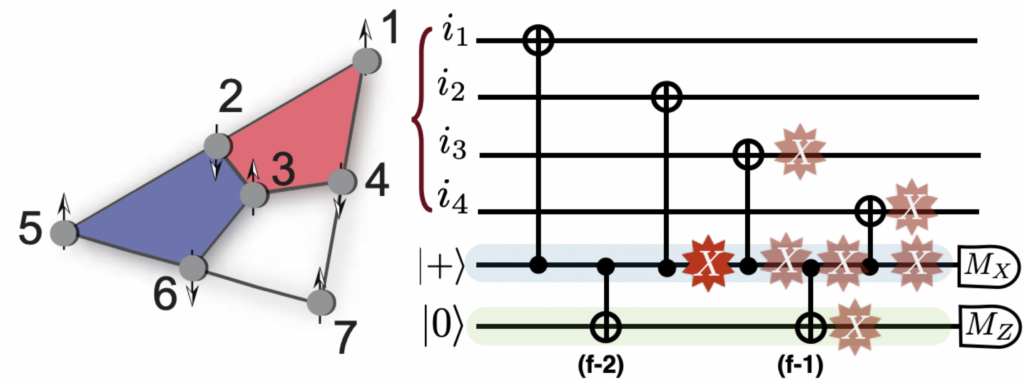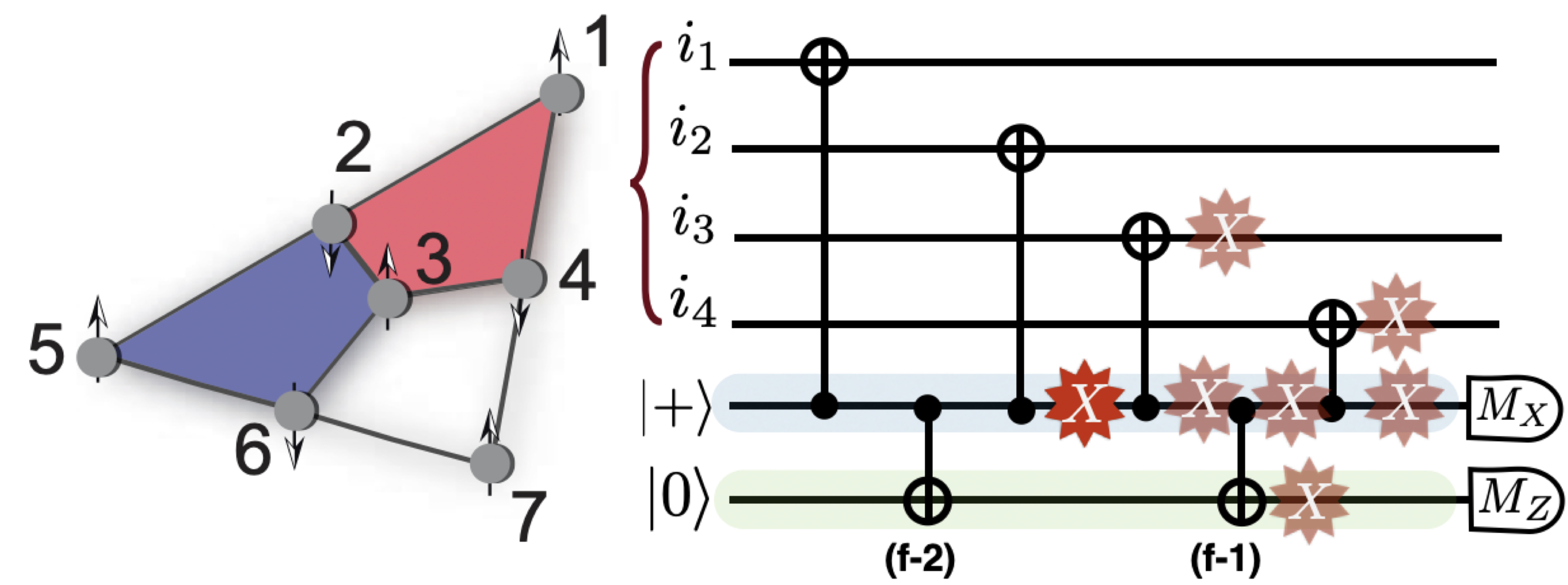Current prototype quantum computers are limited in their computational power due to errors which impedes us from reliably executing longer quantum computations. The underlying problem is that errors proliferate in large-scale quantum computation and destroy any computational advantage if left to accumulate uncontrollably. Here, fault-tolerant quantum error correction promises to detect and correct errors efficiently as they occur during storage and computation.

The main objective of the VEQTOR-project is to develop scalable tools for characterizing, predicting and validating the operational primitives of fault-tolerant quantum information processing. This requires a layered approach, which encompasses the microscopic physical level, circuit operations, smaller quantum error correction primitives and complex logical operations. In collaboration with experimental and theory colleagues from the Universities of Innsbruck (Austria), Madrid (Spain), Waterloo (Canada) and Sydney (Australia), we will develop such protocols and test them in an experimental ion-trap quantum computer featuring exceptionally low error rates. Recently, we developed and implemented Bayesian optimisation protocols for automatic tune-up of gates in quantum processors [1] and a new protocol for the characterisation of generalised measurements, so-called quantum instruments [2].
[1] Experimental Bayesian calibration of trapped ion entangling operations, L. Gerster, F. Martínez-García, P. Hrmo, M. van Mourik, B. Wilhelm, D. Vodola, M. Müller, R. Blatt, P. Schindler, T. Monz, arXiv:2112.01411 (2021)
[2] Characterizing quantum instruments: from non-demolition measurements to quantum error correction, R. Stricker, D. Vodola, A. Erhard, L. Postler, M. Meth, M. Ringbauer, P. Schindler, R. Blatt, M. Müller, T. Monz, arXiv:2110.06954 (2021)

